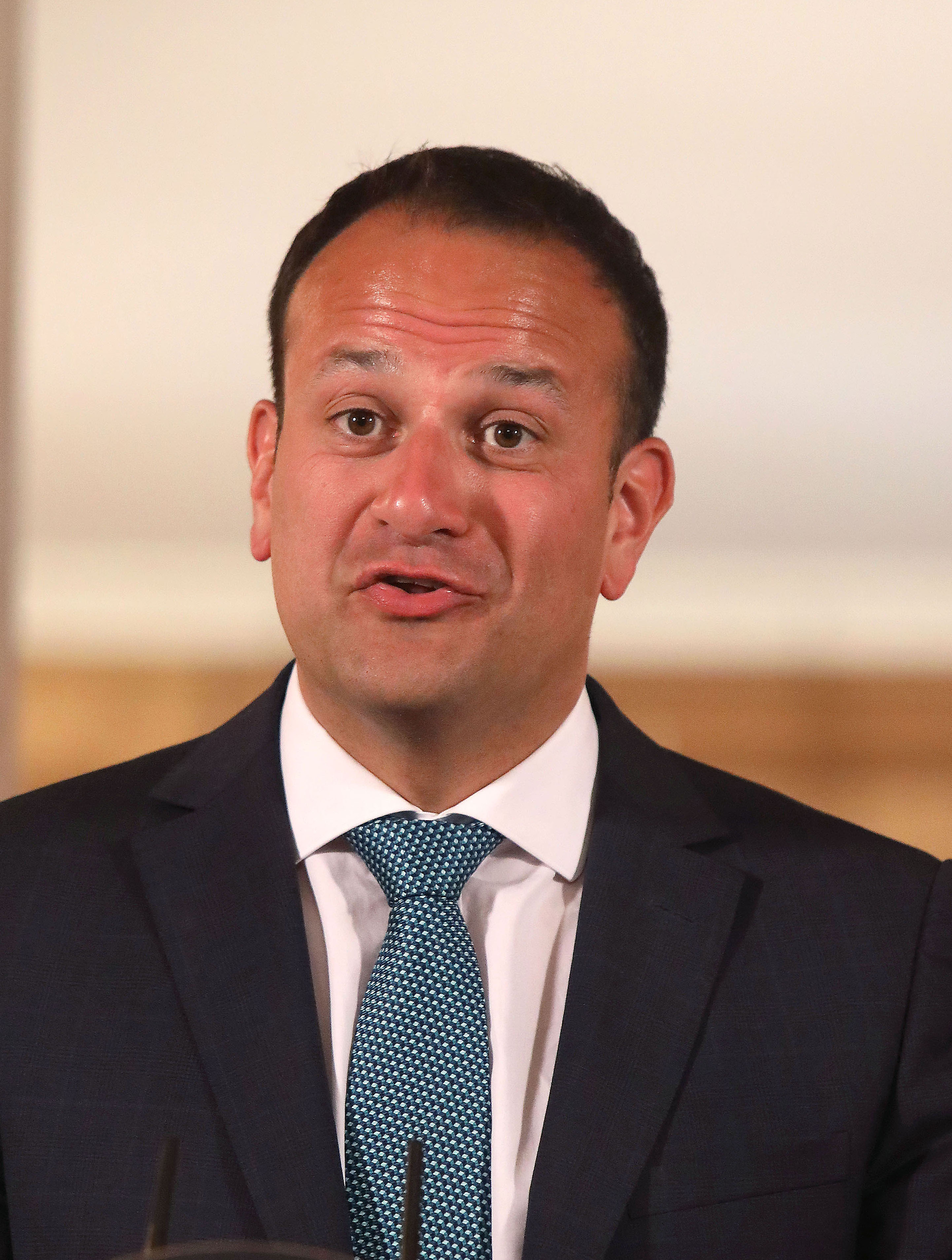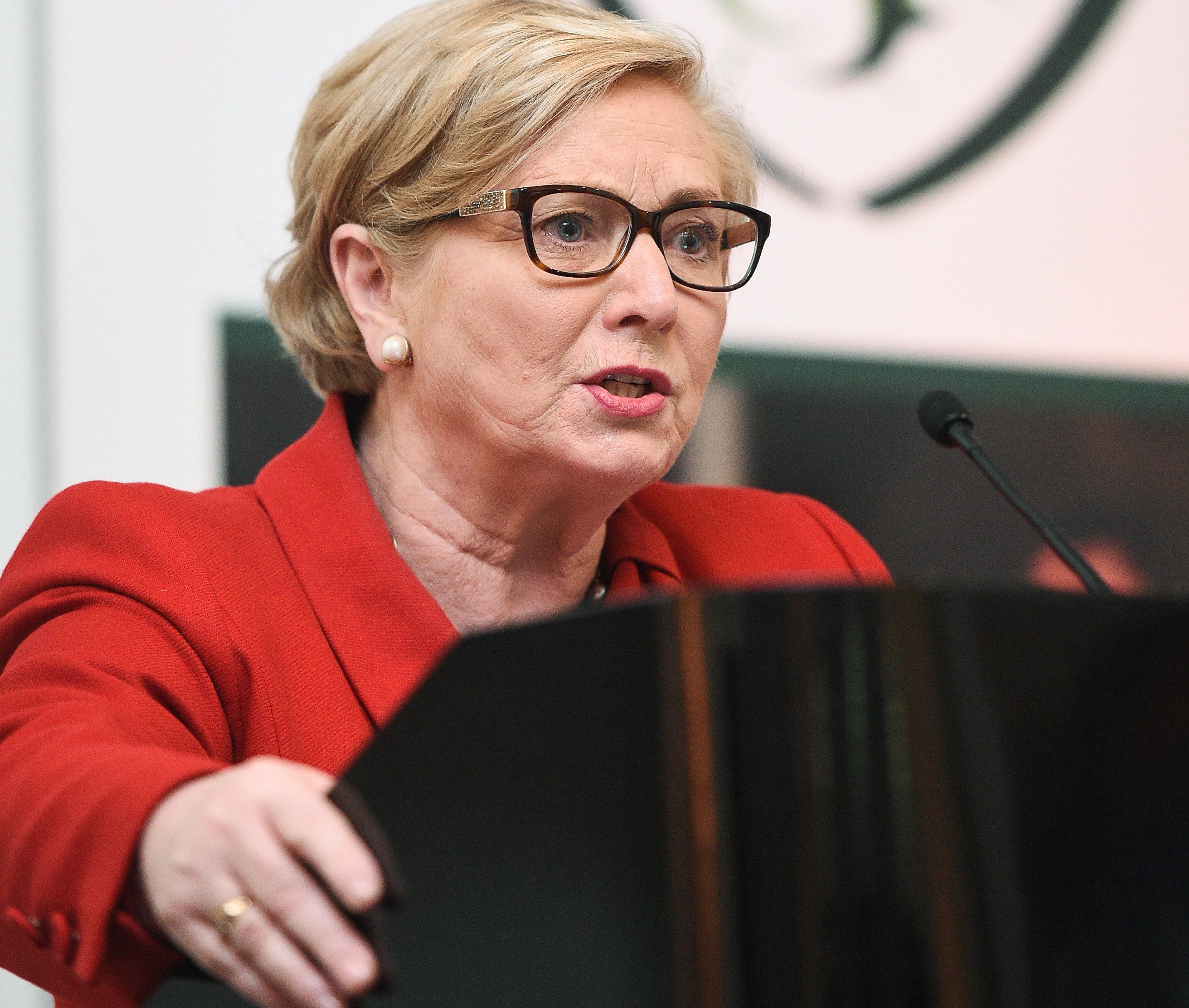

Share
29th November 2017
03:37pm GMT

Jerry, enduring some mental anguish of his own as he listens to his friend, asks him, “Are you sensing anything right now?”
Politicians, too, can sense the slightest human suffering, but because the world they live in is encased by more mirror than glass, sometimes they sense their own human suffering most of all.
When Leo Varadkar appeared on the Six-One News last week, he reminded the audience of his role in making sure Maurice McCabe was heard.
He had done the right thing in that case and now he was standing firm again.
“A terrible injustice was done to Maurice McCabe,” he said, before asking a question which signalled the weekend to come. “Why should we compound that now by doing the same thing to the Tánaiste?”
Are you sensing anything right now? The idea that the ongoing, brutal and chilling attempts to destroy Maurice McCabe could be equated to the clamour for the resignation of the Tánaiste suggested that the Taoiseach was losing sight of what mattered.
Or perhaps it was what mattered to him.
The long days of denial, when Varadkar and Coveney said there was no reason to act, resulted in the scandal of what happened to Maurice McCabe turning into another Fine Gael-Fianna Fáil sideshow.
Maybe this was what they wanted or it may be, of course, that they are deeply limited, that they can’t process anything unless it is framed in the unsophisticated terms they understand. Maybe they aren’t really alive unless they’re in a TV studio late at night saying “I didn’t interrupt you, so don’t interrupt me” to each other.There is a terrible injustice in that, a terrible waste of energy and airtime as usually it is all for nothing. But there are occasions when it matters that something isn’t reduced to the crude simplicities they're comfortable with.
Brexit is one example and Maurice McCabe is another.
Varadkar was unable to recognise that in the case of Frances Fitzgerald over the past two weeks and now he must deal with Brexit.
Perhaps their exposure to the Brexiteers has led Coveney and Varadkar to overestimate their own abilities. The Conservative politicians driving Brexit are the most inept assembled in living memory. They are - to borrow Michael Nugent’s phrase about the FAI - a perpetually exploding clown car.
Demonstrating the idiocy of Iain Duncan Smith, Liam Fox or David Davis requires little more than setting a daily reminder. They could be outmanoeuvred on the way to the shops for a carton of milk.
But when it came to this matter Varadkar and Coveney appeared toneless. After Frances Fitzgerald resigned on Tuesday, they talked about her sacrifice in the national interest, when they had clung on for too long after it was clear that she had to go.

Whatever Fitzgerald endured during this crisis that culminated in her resignation was not a terrible injustice, certainly not compared to the suffering of Maurice McCabe and his family.
By Monday night, few people thought that this controversy was an illusion, but Coveney and Varadkar ploughed on, driven by the burning sense of injustice which could easily be mistaken for a burning sense of pity for the suffering of themselves or their colleagues.
Most people grasped where the real injustice lay. It was never that hard to figure out. This has never been a difficult story to grasp.
“If you haven't been following this story it's too late to catch up,” one journalist wrote last week propagating the idea of this closed world where they’re dealing with matters beyond most people’s comprehension.
In fact, most of the time it is simply beyond most people’s interest.
It was never too late to catch up on the email, the subject matter and the Garda strategy of attacking the motivation and character of Maurice McCabe “right the way through”.
As further emails were released on Monday, most people understood that this was a simple story, a story of aggressive actions taken by some against a whistleblower and an absence of actions by others at critical times.
Maybe it was too complicated for the political class as it strayed beyond the boundaries of their world which is why they tried to make it a tribal fight, returning to their happy place, interrupting each other to demand they shouldn’t be interrupting each other.
When Fitzgerald resigned on Tuesday, the idea was still pushed that this had been an expedient departure for party political reasons. “I expect her to continue to play a full role in political and public life including at the highest level,” Varadkar said as he finally announced on Tuesday that his Tánaiste had resigned while simultaneously looking forward to welcoming her back to public life very soon.
The political class are always most comfortable when retreating to this place and soon they will return to speculating about the new Tánaiste, a mini reshuffle and the country will tune out, not because they can’t grasp its importance, but because they grasp its unimportance all too well.

Fitzgerald may be vindicated in the future, she has undoubtedly taken action on behalf of Maurice McCabe and whistleblowers, and she may return, but nobody should overlook what’s important in this matter.
When he was asked by Sharon Ní Bheoláin if Fitzgerald couldn’t have been inquisitive or picked up the phone, Varadkar said it was improper. The Guerin report, he reminded her, criticised the Department of Justice for being “too close to the Gardaí”, so that was out of the question.
By Monday night, we knew that the then Garda Commissioner was happy to call an official in the Department of Justice a couple of months after the key email to discuss media queries regarding, among other things, the strategy for dealing with Maurice McCabe at a commission.
We also knew that the official was happy to set out a response for the Minister if she should need it.
It may well have been beyond the Minister to tame this “dysfunctional” department, but that doesn’t mean that when the dysfunction is so pronounced, Ministers supposedly in charge shouldn’t be called to account.
In another country - maybe even a country like Britain which we currently regard as a basket case - Fitzgerald would have gone some time ago, Charlie Flanagan would have to resign as well and Varadkar’s judgment would be seen as so questionable that he would be under great pressure himself.
Irish politics doesn’t work like that and maybe that’s ok. Maybe it’s ok that Charlie Flanagan doesn’t have to resign for low level incompetence and hysteria. And maybe it’s ok that Varadkar is damaged but not finished by his inept handling of this, as he would be elsewhere.
But people also know what's not ok.
They know what matters and they know what doesn’t. They can sense real human suffering and they know who is a victim of injustice and who is not.
Main image via RTE News
Explore more on these topics:

Politics | Joe.ie
politics